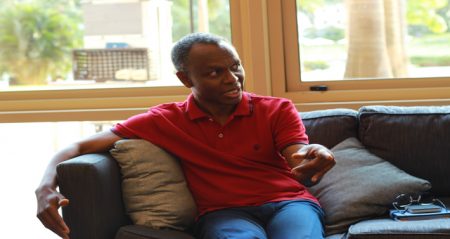by Billie McTernan
The vote, which saw opposition candidate Nana Akufo-Addo defeat President John Mahama, was only the second time an incumbent leader had been ousted in multiparty elections in West Africa.
El-Rufai was in Ghana to observe the elections as part of a delegation from the United States’s National Democratic Institute.
As Charlotte Osei, chairwoman of Ghana’s Electoral Commission (EC), prepared to release the official results on 10 December, El-Rufai said that Ghana had set a “gold standard” for elections.
Legal reforms
He said the country’s legal reforms, which compelled the commission to make available more information about the elections results and collation to all the competing parties, had helped to make the vote much more accountable.
El-Rufai said he understood some of the scepticism of the opposition towards the electoral commission. “It is usual when a sitting president appoints an electoral commissioner for that commissioner to be under constant suspicion of the opposition,” he said.
“We [the All Progressives Congress (APC)] did that to [Attahiru] Jega in Nigeria, and I'm sure the opposition here did that to Charlotte. But I think they [EC] have worked very hard to put in place a very credible process.”
Drawing parallels
Many political activists have drawn parallels between the victories of Nigeria’s opposition APC and Ghana’s opposition New Patriotic Party.
Both defeated incumbent leaders at a time of deep economic hardship in their countries.
Pleased that the EC had met with and taken advice from Jega, the former commissioner of the Independent National Electoral Commission that organised Nigeria’s 2015 elections, El-Rufai said his country should adopt some of the EC's innovations.
“Nigeria has had experience in violent elections [but…] we have stepped away from that. We've been there. We've done that, and it's not the way to go. There is absolutely no reason why electoral arguments should be settled on the street.”
As a leading member of the opposition alliance that unseated President Goodluck Jonathan and the People’s Democratic Party in Nigeria last year, El-Rufai said the political establishment was under attack: “The signal that I have seen around the world is a mood that tends to be anti-incumbent, anti-establishment and anti-typical politician.”
Recession blues
Although, Nigeria’s Muhammadu Buhari broke the political mould with his defeat of Jonathan last year and promises to end corruption and create jobs, he has presided over the country’s worst recession for two decades.
After listing the obstacles facing his government, El-Rufai, who is often seen as a potential future presidential candidate in Nigeria, added: “There is a wind blowing […] particularly in Africa. As an incumbent now, I'm having serious thoughts.”
Nigeria is due to hold its next presidential and parliamentary elections in 2019.
To read the full piece from The African Report, click here.

